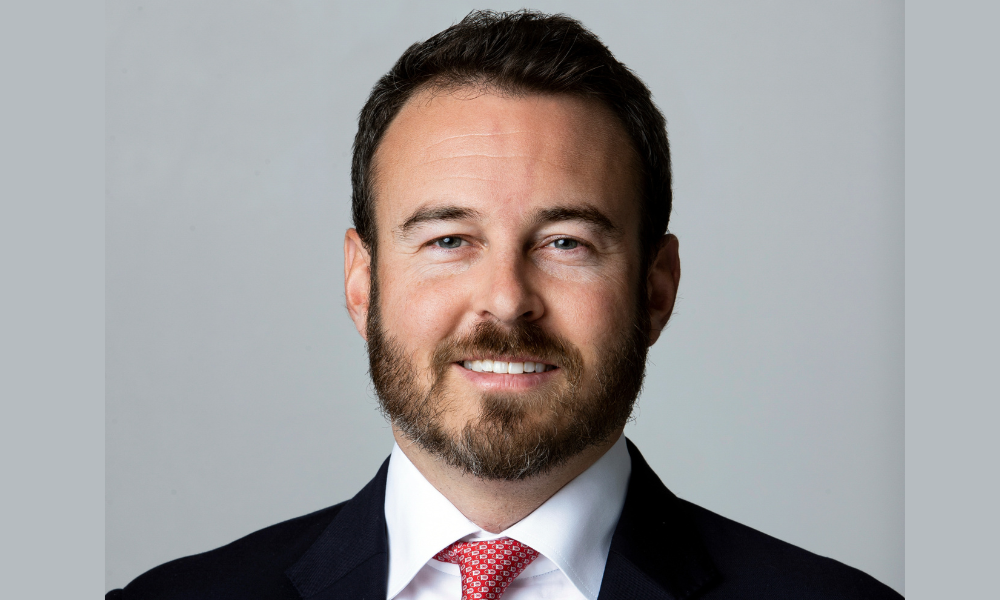PM explains why he thinks Canada won't cut until after the Fed, and what he would tell clients now

Yesterday gave us a rare central bank double feature. The Bank of Canada announced its key interest rate decision, holding rates at 5 per cent, and US Federal Reserve Chair Jerome Powell delivered remarks on Capitol Hill. The key takeaway from both statements was that neither central bank thinks it is prudent to start cutting interest rates just yet. The risk of inflation — or inflation expectations — resurging is simply too high.
While neither statement surprised analysts, Kevin Burkett did remark on the somewhat divergent tones between Powell and Bank of Canada Governor Tiff Macklem. The portfolio manager at Burkett Asset Management explained that while the US economy seems to now be significantly outperforming Canada’s, Powell’s tone was somewhat more dovish than Macklem’s. He says the Canadian tone is harsher now for one simple reason.
“Housing,” Burkett says. “I think Tiff Macklem is rightfully worried that the Canadian housing market has not cooled to the degree that one might expect given the magnitude and rapid nature of the 2022-23 barrage of rate hikes. I would be worried too, coming into the spring real estate cycle, that rate cuts might potentially send an overheated housing market up further and risk frustrating one of the objectives of the rate cuts.”
Another ongoing source of inflationary pressure that Burkett remarks on is the dislocation between monetary and fiscal policy. While the Bank of Canada has raised rates and pursued quantitative tightening, the Federal Government has run massive deficits and spent in ways that seem to run contrary to an inflationary environment. Burkett thinks there is an attempt on the part of government to stimulate while the central bank tries to cool things off, with the goal of avoiding recession. He describes that attempt as somewhat “reckless,” and another possible reason why Macklem has maintained a hawkish tone.
Following yesterday’s announcement, Burkett now thinks that interest rate cuts in Canada will come in July, following a Fed cut in June. He thinks the more dovish tone taken by Powell will mean the US cuts first. That US cut will then give Macklem the last bit of cover he needs to cut. That market is roughly in line with where the market consensus sits now, but Burkett accepts he is perhaps a bit more cautious.
Given that outlook he sees a preference for shorter dated fixed income. Longer-duration bonds may be too much of an attempt to time the market right now, and may be subject to too much volatility around interest rate expectations. Stocks have surprised to the upside so far this year, but Burkett also advocates caution, especially around the big tech names that seem to be leading the market. Defensive, non-cyclical names look more attractive to Burkett, within the context of an all-weather portfolio.
Beyond asset management, another delay in BoC cuts can have a serious impact on clients’ financial plans, goals, and overall wellbeing. More and more clients are seeing their mortgages come up for renewal, which could derail their overall plans. Burkett says that as an advisor, the responsible thing to do in these situations is to encourage clients to pay down existing debts rather than contribute to their investment accounts in the immediate term. Burkett would rather see his client pay off a line of credit with an 8-10 per cent interest rate, than invest and try to achieve a risk-free rate that significantly outperforms what they’re losing on interest. He says that this kind of advice is something that wins trust from clients and improves the overall relationship between advisor and client.
Beyond those personal finance decisions, Burkett cautions against trying to time the market. There are a host of reasons for people to be worried, but even the past few years have shown that those who stayed invested have largely come out ahead.
“I think people who were prepared to remain invested through the period have been rewarded well for taking on that risk if they did so in a sensible way,” Burkett says. “I think trying to get a separation between the headlines your client is reading and the advice your giving can help clients see things more clearly.”



